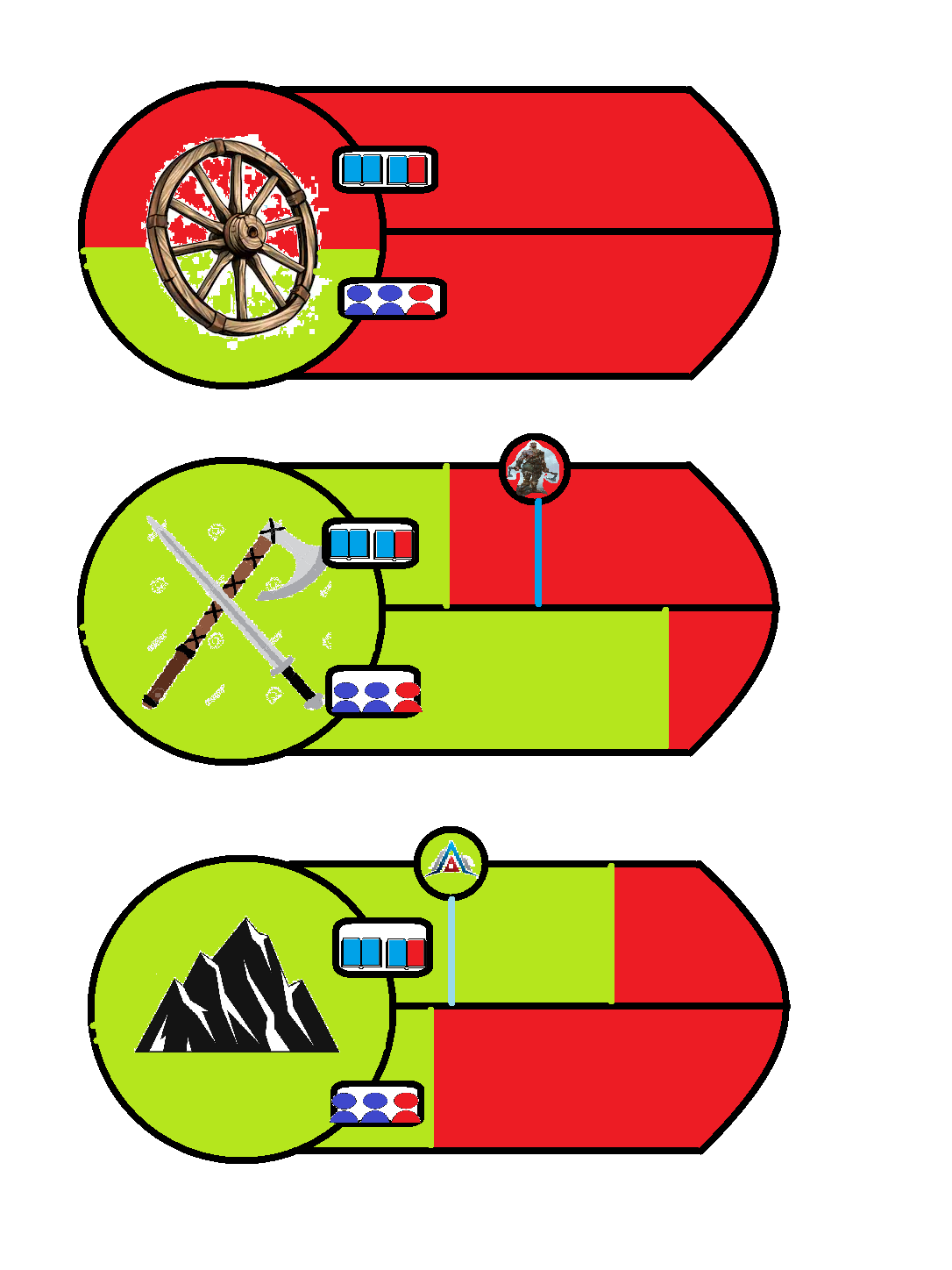Maybe a system in which "settlements" are static, but "territories" are not?
There would be set locations for settlements (representing the "ideal" location for settlement in that area), but the territory they control can change. So when you colonize new land, you get a new territory with only 1 tile which holds the settlement.
Example/Comparison picture for uncolonised land: (grey dots represent settlement locations)
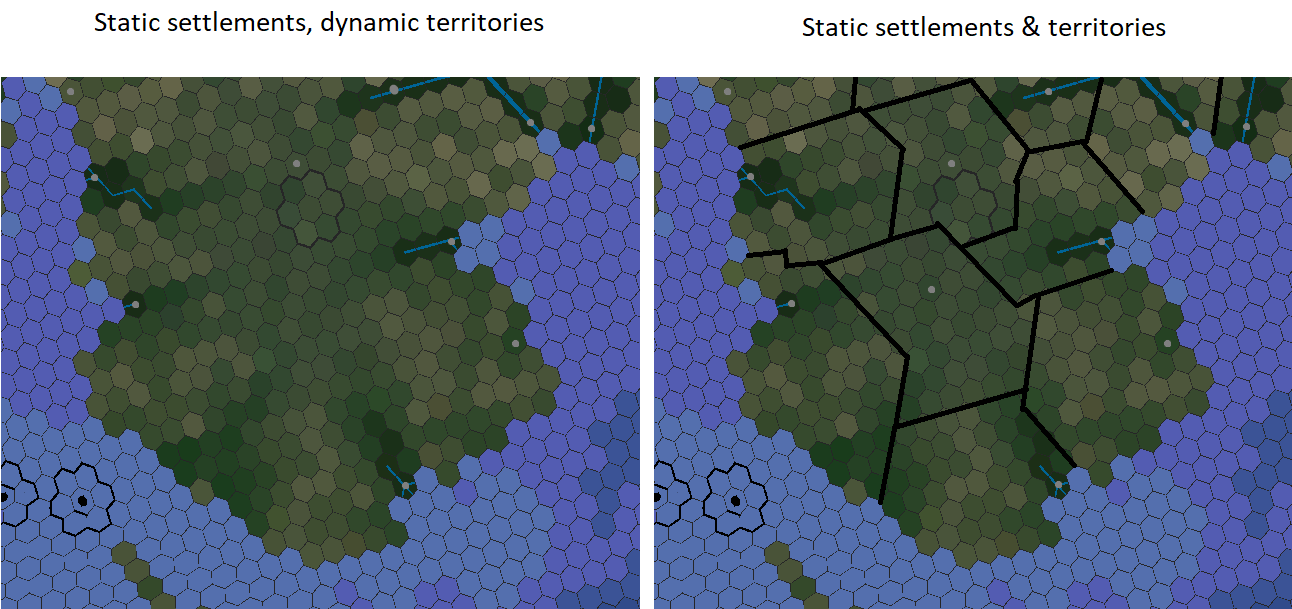
Example for newly colonised land:
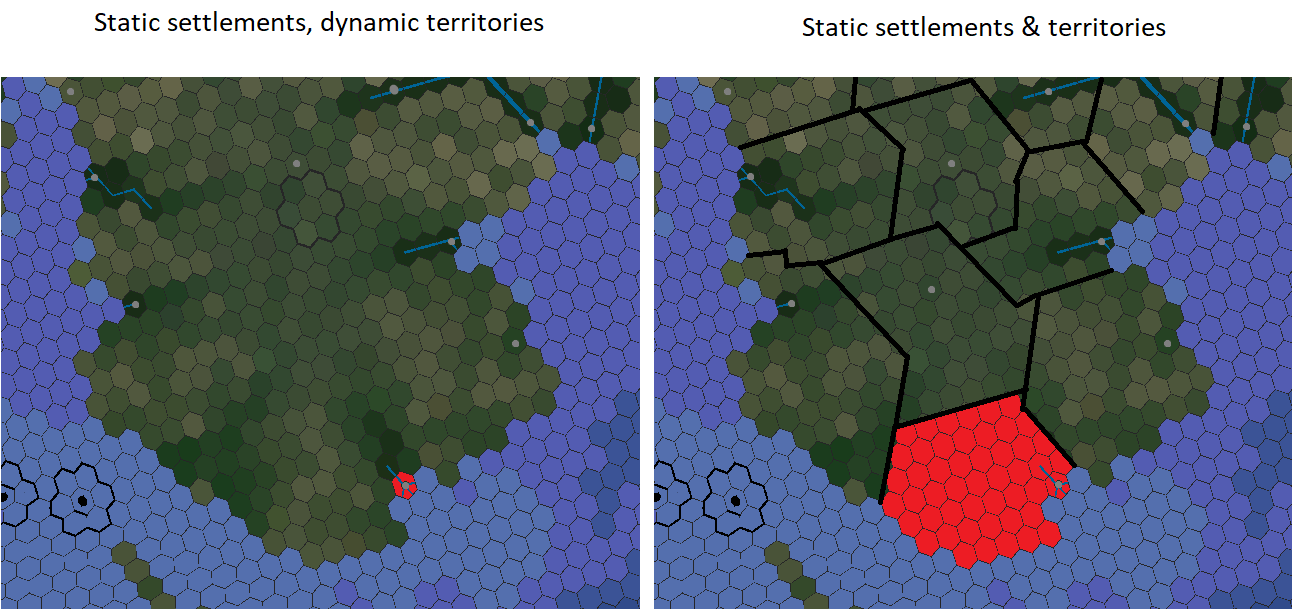
As it builds up, the settlement starts exerting its influence over neighboring tiles and further. It could even control tiles, that under static territories would belong to another territory.
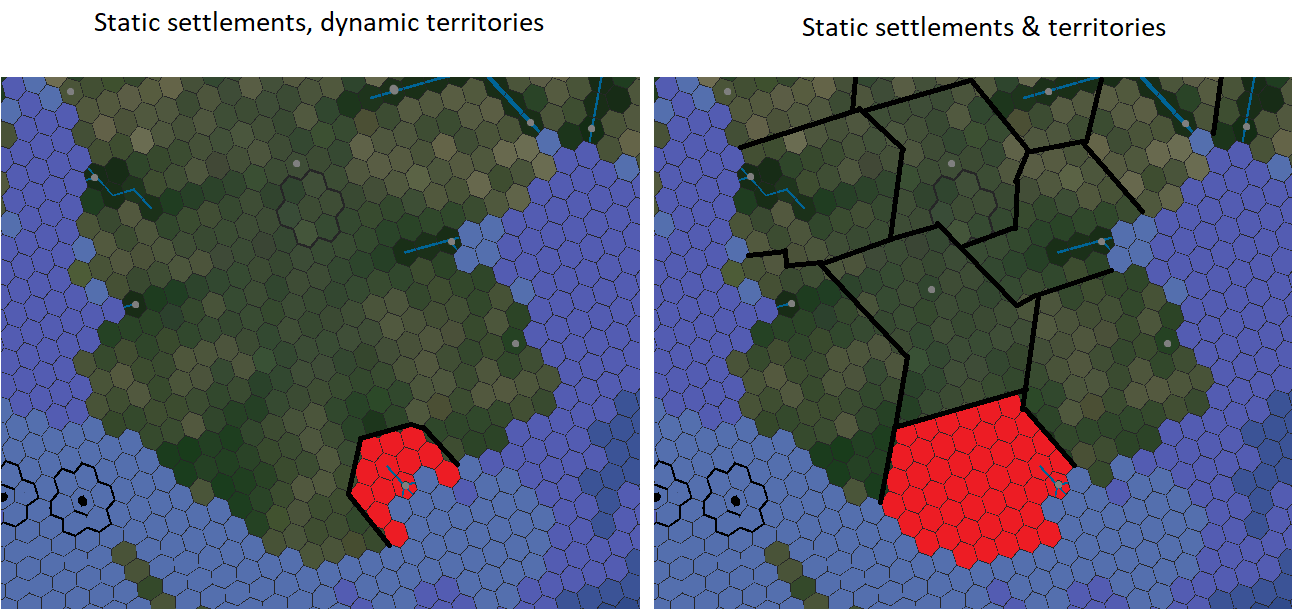
Tiles that would belong to another territory are behind gray line(could, or could not be shown during actual gameplay):
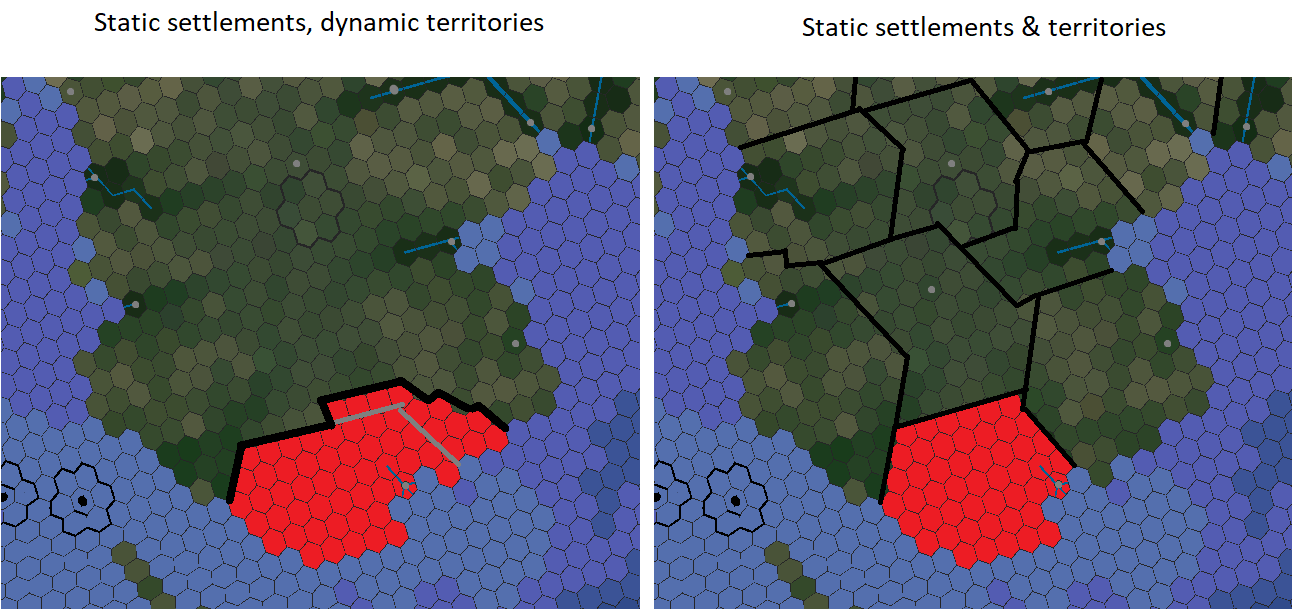
When it reaches next "settlement location", it creates new settlement under new territory(separated with thinner line):
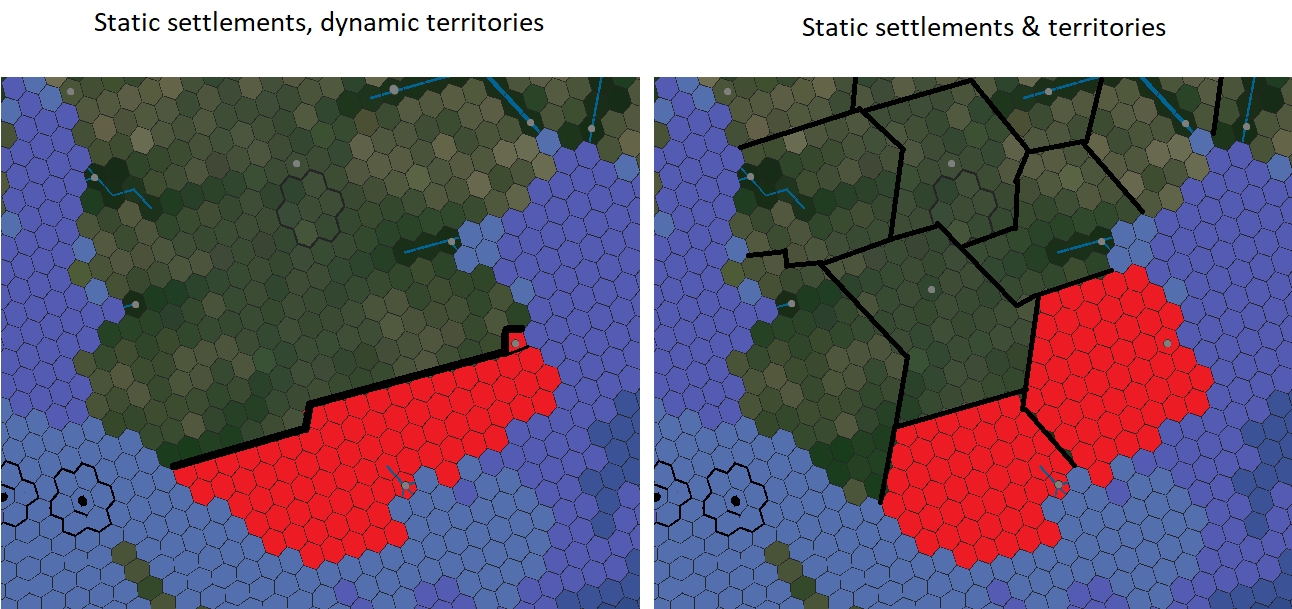
Now, the agents system could come into play, because first settlement agent may want to keep all the territory it previously had for itself, while the new settlement agent will consider tiles that are closer to it (but were claimed by first settlement earlier) rightfully its own, and on top of claiming new tiles for itself, it will also try to "retake"(purchase, ask overlord for intervention) some of the tiles from the first settlement.
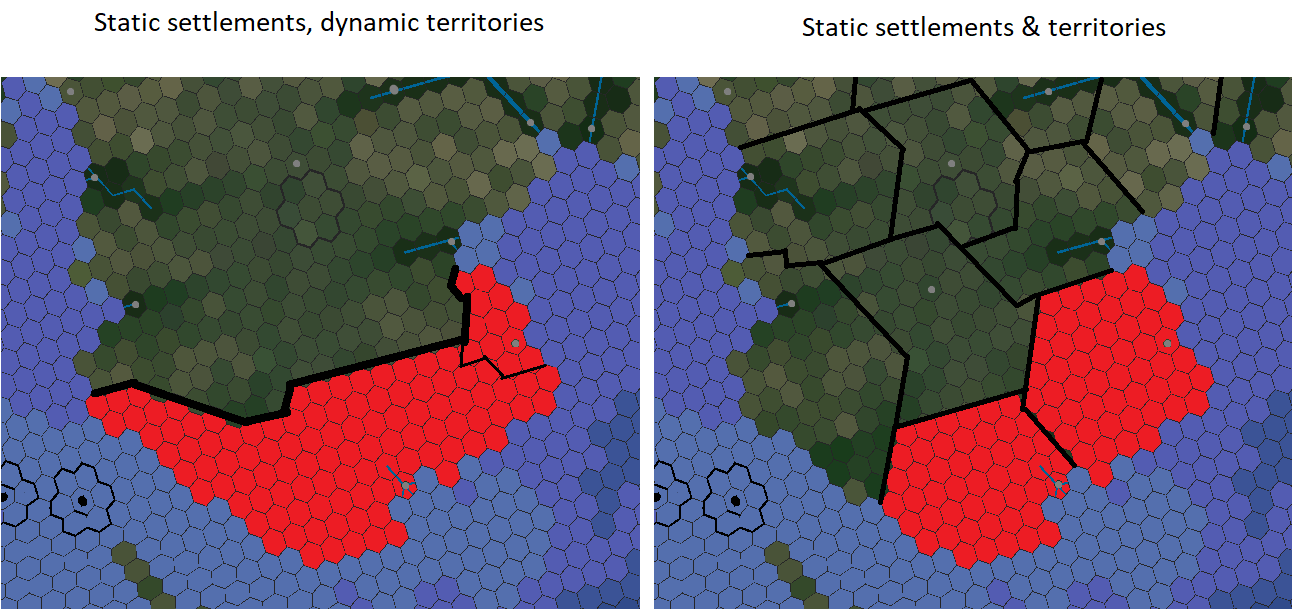
There could be laws for that so player can decide whether he wishes for territory borders to have the same distance to both settlements, use "static" territory borders as reference or use the "first come, first serve" rule.
As a sidenote, I also wanted to ask: will movement be tile- or territory-based?


